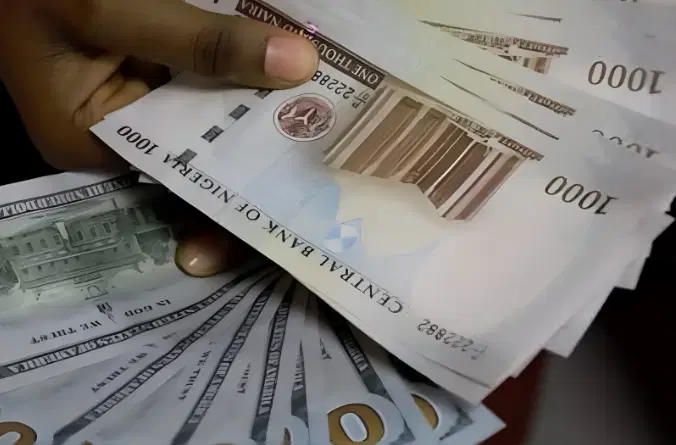The naira ended 2024 at an official exchange rate of N1,535/$, reflecting a 40.9% depreciation compared to the 2023 year-end rate of N907.11/$.
The significant drop occurred despite the Central Bank of Nigeria (CBN) implementing several policies aimed at improving market transparency and attracting foreign investment.
Among the reforms introduced by the CBN were the unification of foreign exchange windows under the Nigeria Foreign Exchange Market framework and the establishment of the Nigerian FX Code, which outlined ethical practices and governance for market participants.
On the parallel market, the naira depreciated to N1,660/$ by the end of 2024, a 26.8% decline from N1,215/$ at the close of 2023.
Despite the CBN’s aggressive efforts to stabilize the currency, such as clearing $7 billion in outstanding foreign exchange claims and automating currency trading for improved efficiency, the naira faced considerable pressure.
Governor Olayemi Cardoso highlighted the resolution of the $7 billion in outstanding claims as a key step toward stabilizing the market. In May 2024, the CBN revised guidelines for Bureau De Change (BDC) operators, allowing them to directly source foreign currency from authorized dealers with a cap of $25,000 per week during peak demand periods.
A major reform was the consolidation of all FX trading windows into a single market to improve liquidity and transparency. The CBN also introduced the Voluntary Disclosure and Repatriation Scheme, encouraging businesses and individuals to deposit internationally tradable currencies into designated domiciliary accounts.
Despite these efforts, the naira struggled due to limited foreign exchange inflows, a widening gap between official and parallel market rates, and capital flight by foreign investors. The World Bank identified the naira as one of Sub-Saharan Africa’s worst-performing currencies in 2024, attributing the depreciation to increased demand for dollars and delays in foreign exchange disbursements.
The CBN’s direct FX sales to BDCs and the introduction of the Nigerian FX Code in October, which imposed mandatory compliance deadlines for market participants, were part of broader attempts to address the crisis.
While President Bola Tinubu’s budget projection for 2025 aims to reduce inflation from 34.6% to 15% and improve the exchange rate to N1,500/$, Fitch Ratings warned that the anticipated budget deficit could lead to further depreciation, higher inflation, and increased borrowing costs.
However, the International Monetary Fund reported early signs of naira stabilization, partly due to interest rate hikes and the resolution of FX backlogs. Aminu Gwadebe, President of the Association of Bureau De Change Operators of Nigeria, expressed optimism that the N1,500/$ target could still be achievable through ongoing CBN reforms.



